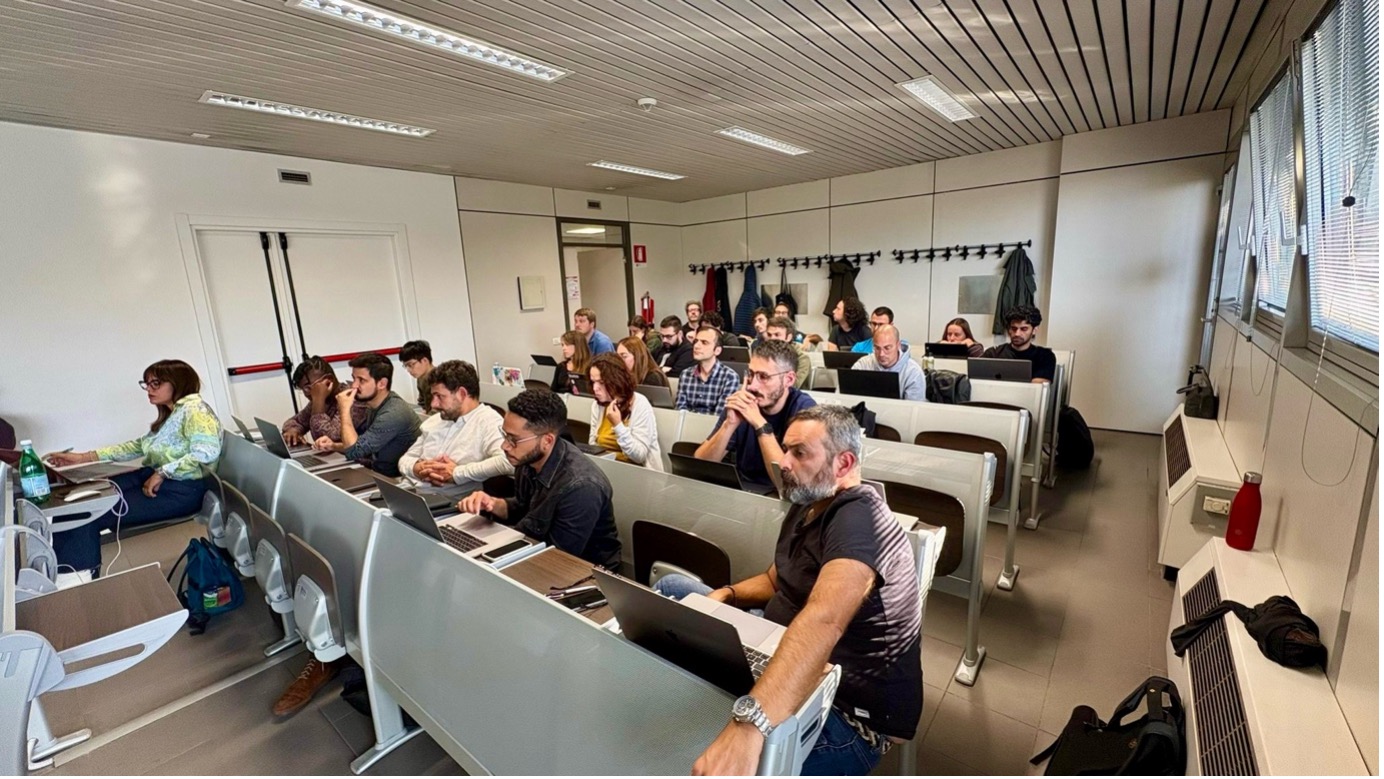Cloud Native Ocean Data Analysis and Visualisation School officially kicks off in Bologna
On October 14th the opening of the Cloud Native Ocean Data Analysis and Visualisation School, a training initiative co-organized by CMCC, the University of Bologna and EGI.
Published on 14 October 2025 | Events
Today marks the opening of the Cloud Native Ocean Data Analysis and Visualisation School, a training initiative co-organized by CMCC, a member of the DCC-CR Partner Alliance Network, the University of Bologna and EGI in collaboration with EDITO.
The course brings together 40 participants, joining both in person at the Department of Physics and Astronomy of Alma Mater Studiorum – Università di Bologna and remotely from different institutions. Designed to enhance technical and analytical skills in the rapidly evolving field of ocean data science, the school offers a comprehensive program focusing on cloud-based data analysis, interactive visualization, and scalable computing solutions for ocean research and operational applications.
Throughout the week, participants will explore topics such as:
- Introduction to cloud-native approaches for ocean data analysis,
- Pangeo ecosystem and interactive visualization tools (Holoviz, Xarray, Dask),
- Data access and infrastructure (SURF on the Edito-Infra, object storage services),
- Hands-on sessions for practical applications.
The school is directed by a scientific committee composed of Nadia Pinardi (UNIBO – DCC-CR), Giovanni Coppini (CMCC), Paolo Oddo (UNIBO), and Richard Signell (Open Science Computing LLC), and benefits from the contributions of a distinguished faculty of experts and practitioners. Their commitment and expertise are key to ensuring a high-level learning experience for all attendees.
The opening session already set a positive tone, with active engagement from participants and a dynamic exchange of ideas. This promising start suggests a successful and impactful edition, contributing to the broader goals of enhancing ocean data literacy and advancing scientific collaboration.
The DCC-CR is proud to support this initiative, which aligns with its mission to foster knowledge sharing, capacity building, and innovation within the international coastal resilience community. A warm thank you goes to all the lecturers for their dedication and to CMCC for organising this important training event.
Album


